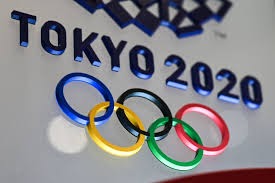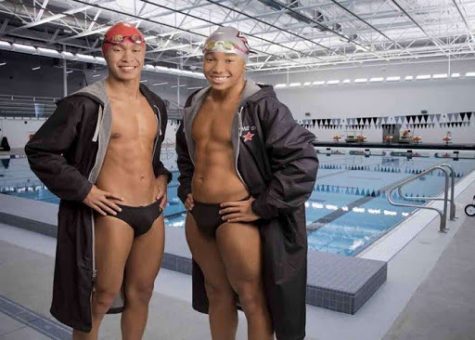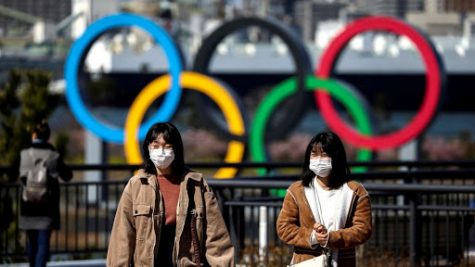COVID’s impact upon the Olympics
Tokyo 2020 Olympics deferred after COVID-19 pandemic.
The Olympic games have never been postponed or canceled for anything other than war, and rarely has the world come to a sudden halt the way it has on account of COVID. As the pandemic began, people worldwide still had a glimmer of hope for the Olympics, even while other sports were derailed or stopped altogether.

Unfortunately, COVID affected the world a lot more drastically than we thought. The Japanese Prime Administer, Shinzo Abe, officially delayed the 2020 Olympic games on March 24th, 2020, as the pandemic was at a high-risk state. They had agreed with IOC (International Olympic Committee) it would be safest to wait for the Olympics due to the dire circumstances and death tolls rising.
According to NBC News, after the announcement, Abe added, “Considering the current situation, regarding the Tokyo Games, as the host nation, to ensure that athletes from all over the world can compete in their best condition, and also ensure the utmost safety for the spectators, I have asked him [Tomas Bach] to consider postponing the games by about a year.” They agreed to defer the games until the following summer, in 2021, rather than entirely canceling the 2020 Olympic games.
Although that was the smartest decision, it doesn’t confirm the 2021 Olympic games. According to Richard Lloyd Parry of The New York Times, it appears Japan may decide that this year’s Olympics will need to be canceled ultimately. After a lot of discussion between Japan and health services, the Japanese government has privately concluded to compensate for the 2021 Olympics and instead focus on getting ready for the 2023 Olympics. In spite of the fact that it will most likely be canceled for 2021, Japan is fearing a potential cancellation announcement. Doing this risks the chances of Tokyo hosting the Olympics in future years when the Olympics open back up.

“I see the cancellation as a good thing: swimming was limited for several months, and anyone qualified for the trials would’ve only had two months of limited in-water training to get back in shape,” Gian Santos, a swimmer, said. “For anyone who doesn’t know, swimmers have a saying: each day of no training is equivalent to two days of death to make up for it,” he added. Not only were the Olympics affected by COVID causing cancelation, but even without the postponement, it would’ve been a difficult season for those taking part. Santos stressed that the athletes would’ve been overworked trying to get back in shape for so many months out as training and places open were limited.
Swimmers aren’t the only ones who would fight to get back on their feet. Athletes around the world have spent lots of time preparing for the Olympic games. Those people dedicate their lives to this event, putting in long hours and hard work into something beyond most human beings’ abilities. Without cancelation, athletes would be challenged even more to compete with little and limited practice due to the pandemic. With cancelation, athletes’ hard work and dedication are put back a year, maybe even two, forcing them to shift their training to be in shape for the next Olympics.
“It must suck to work so hard to accomplish something and then have it taken away because of COVID,” said John Pohl, a wrestler. As an athlete himself, he is aware of the dedication and time put into training for a sport, let alone those who spend their lives training to be the best for a chance at the Olympics.
Fortunately, not all hope is lost. According to the Olympics site, Japan has agreed to push the dates back for the Olympics from July 23rd to August 8th. This allows the Olympics to continue as planned as more health procedures will be implemented; moving the dates back allows health authorities to get fully involved. As of now, the Olympics are scheduled to be still held in the summer of 2021, though they are tracking the virus. Organizers have mentioned that the Olympics will look different from previous summer games due to the extra safety precautions. Things such as scaling back the number of participants, encouraging social distancing, limiting face-to-face interactions, restricting movement, and toning down pageantry, according to The Washington Post.

Athletes are allowed to stay within the Olympic Village only for the duration of their competition. They will also be required to take their temperatures and Covid testing would occur regularly throughout their stay in Japan. For extra precautions, they have also asked athletes to avoid using any type of public transportation or visiting any public places. With the significant change to the Olympic Games procedures, people seem to have different opinions upon whether or not the Olympics should be continued.
“I believe the 2020 Olympics should be postponed unless it can be solely aired on television instead of direct contact between the athletes and spectators”, stated a student, Tavi Cameron. Others believe it is now safe enough to host.
Taylor Browning, a young athlete herself, said, “I think that with all of the Covid rating not being as high, it could be a good idea to continue with the Olympics this summer. Everyone really enjoys the games and it would be a good way to start bringing things back to normal.” While people around the world are desperate for a breath of normal life, fingers are crossed that something such as the Olympics will start to get us back on track.
The pandemic impacted many people involved in sports, causing people to become frustrated over lost chances and wasted hard work and relief for those who were more worried about their health and safety. This is a time of uncertainty still being discovered. As there are no plans or ideas about what will be in the future, the world waits for the future Olympic Games news.

Karina Gofshteyn is currently a Junior at Eaglecrest and this is her third semester on staff. Karina enjoys working with opinion stories with a wide range...






